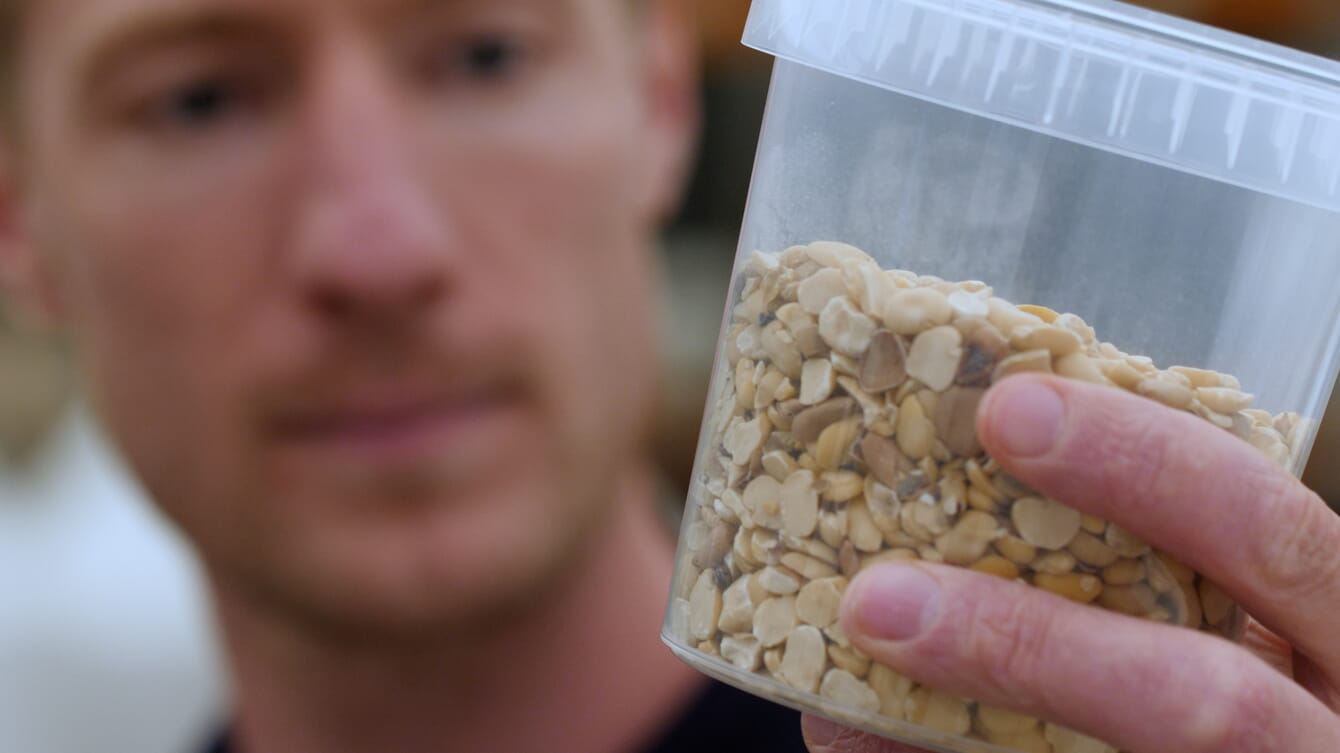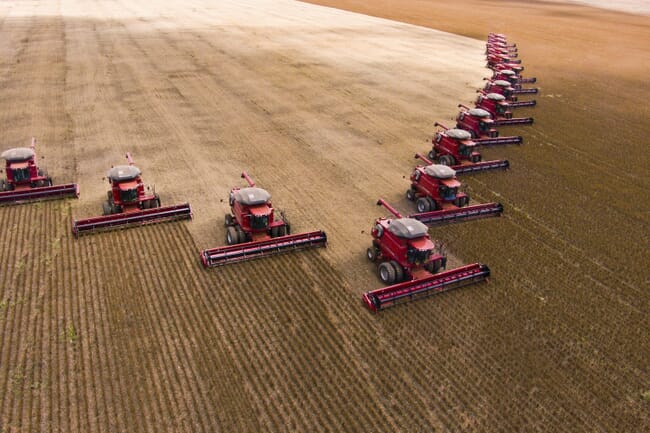
BioMar has made a commitment to reduce the climate impacts of its feed portfolio © BioMar
Food tech company Benson Hill and aquafeed giant BioMar are announcing a strategic collaboration to leverage Benson Hill soy and further assess its sustainability impact on high-performance aquafeed formulations.
BioMar is sourcing consecutive seasons of Benson Hill ingredients as part of its commitment to build restorative soy supply chains. Feed holds the primary cost in the farming of aquaculture and is the major contributor to its carbon footprint. Benson Hill advances sustainability goals throughout the ingredient development process – from monitoring regenerative and deforestation-free practices on the farm to producing ingredients that reduce water and energy-intensive protein concentrating steps in processing. Together the companies are assessing how the advantages of Benson Hill ingredients advance BioMar’s sustainability programme and reduce the impact of aquaculture farming for BioMar customers.
“BioMar has made a commitment to reduce the impacts of our feeds, and 97 percent of the carbon footprint comes from the feed ingredients,” said Morten Holdorff Møjbæk, global sourcing director, BioMar Group. “With our exit last year from the Russian raw material market, it was important for us to find suppliers committed to working with us to ensure we deliver on our responsible sourcing ambitions. Benson Hill’s closed-loop business model, robust US farmer network and ability to trace back to seed make them an ideal collaborator.”
The companies expect this collaboration to demonstrate that reducing carbon emissions in the world’s fastest-growing protein sector and meeting market demands for traceability can be achieved at the same time. Consumption of blue foods continues to rise around the world. According to the FAO, global consumption of blue foods (excluding algae) has increased at an average annual rate of 3.0 percent since 1961, compared with a population growth rate of 1.6 percent. In 2020, global aquaculture production reached a record 122.6 million tonnes.
“By working with a global leader like BioMar, we can help accelerate ongoing efforts in the industry to stand up fully deforestation-free supply chains and decrease the carbon footprint of products consumers love,” said Matt Crisp, CEO of Benson Hill. “Through this joint effort, Benson Hill and BioMar will be able to further research how high-protein, low-oligosaccharide, plant-based ingredients perform in aquaculture feed at scale, and potentially slash carbon emissions in that supply chain. Stewarding our planetary resources is essential on the journey to accelerate transformation in the global aquaculture industry.”
According to the FAIRR Initiative, a collaborative investor network that raises awareness of the material environmental, social and governance (ESG) risks and opportunities caused by intensive animal protein production, aquafeed production is “associated with the extraction of vast quantities of wild fish, which can lead to overexploitation of stocks.”

Benson Hill is a leader in deforestation-free soy and is learning how to slash the carbon emissions of key feed ingredients © Alf Ribeiro
Research on raw materials, ethically derived from high-protein soy can begin to alleviate this issue. Separately, Benson Hill recently achieved the ProTerra Certification, validating the ESG principles guiding its work to deliver non-GMO ingredients to markets within and outside the United States.
BioMar will receive its supply of Benson Hill soy through supply chain specialist Denofa. Denofa has vast experience in non-GMO soy supply chains and is managing the sales and distribution of Benson Hill’s aquafeed portfolio in Northern Europe. In April 2022, Benson Hill and Denofa announced a plan to form a strategic alliance to introduce sustainable soy protein ingredients into the Northern European aquaculture feed market.




